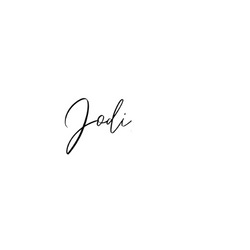
Hi Squad,
Can you believe it’s already February? We’ve got some exciting things lined up for the community in 2025. Today we’re asking what does it mean to read with your writing hat on?
If you’ve signed up for these newsletters don’t forget you can also follow me over on insta to join in the conversation. You’ll find me @jfgibsonwriter.
🎩 How to read with your writing hat on (and off)
If you’re a writer, you’ve probably been told to read like one. But does that mean you can never just enjoy a book again? Not necessarily! The trick is knowing when to zoom in and when to zoom out. Let’s talk about it.
Reading with Your Writing Hat On
Think of it like being both a detective and an apprentice. You’re analysing how an author weaves a story together—how they build tension, develop characters, and craft compelling prose. Here’s how to do it effectively:
Pacing: Notice how the author moves the story forward. Are the chapters short and snappy or long and immersive? Do you feel compelled to keep reading?
Character Development: Pay attention to how characters evolve. Are they complex and believable? What details make them feel real?
Dialogue: Is the dialogue natural and engaging? Does it reveal personality or move the plot along?
Conflict & Stakes: How does the author introduce tension? What keeps you invested in the story?
Language & Style: Take note of striking descriptions or unique phrasing. What makes the writing stand out?
Structure: Observe how the story is put together. Are there multiple timelines? Unreliable narrators? Flashbacks?
Keeping a reading journal can be a game-changer—jot down what works, what doesn’t, and how you might apply it to your own writing.
Knowing When to Take It Off
But reading doesn’t always have to be homework. Sometimes, you just need to let a book sweep you away, no analysis required. Losing yourself in a story reminds you why you love storytelling in the first place. And here’s the secret: your brain is still learning, even when you’re not consciously dissecting every word.
Finding Balance
The key is to read with intention. When studying craft, dig deep. When reading for fun, let go. Both approaches feed your creativity, and both will make you a better writer. So, next time you pick up a book, ask yourself: is this for study or escape? Either way, you’ll benefit.
Comps & Opportunities
☘️ Tasmanian Writers’ Prize
Date: 14th February
The prize is for short stories up to 3,000 words having an island, or island-resonant, theme. Details here.
☘️ Mulga Bill Writing Award
Date: 24th February
Poetry and short stories accepted. Details here.
☘️ Sorrento Creative Writing Prize
Date: 1st March
$5,000 prize, short story 2,500 words. Details here.
Food for Thought
⚡️ Top 10 Publishing Trends for 2025
⚡️The Best Debut Novelists of 2025
Ask The Author Podcast
🎙️ This week, on the Ask The Author podcast…
Returns February 2025. Don’t forget you can head through the backlist of amazing episodes in the meantime. And, if you have your own question, please feel free to ask by hitting reply to this email. (And you can remain anonymous.)
Now out on your fav podcast app, or here’s the apple link or simply search for Ask The Author with Jodi Gibson
Until next time, happy writing!
Thank you for subscribing to the WSC Writers Hub, which is a free community on Substack. My vision is to create a community of likeminded people that’s accessible to all which is why I operate under the free subscription model. However, if you find what I’m offering is of value and you wish to contribute, you can drop me a tip via ko-fi,com. to show your support.


You’ve hit the ground of 2025 running Jodi! Well done & thank you for great newsletters